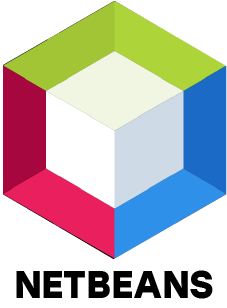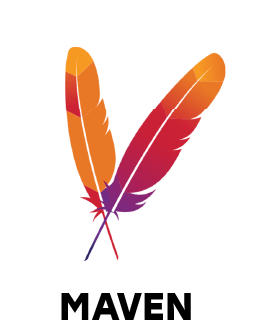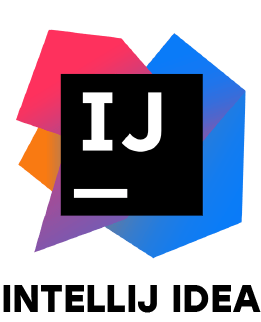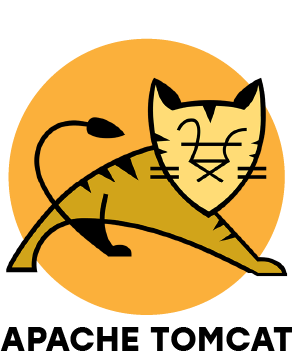Additional Info
Introduction To Java Certification Training:
Java programmers style complicated web-based applications. Java is widely used on e-commerce sites to gather information and validate user data. Java developers are a unit responsible for exploiting this scripting language to switch the look and practicality of internet sites at their client's request. Java programmers will produce new programs further as they revise existing ones. They conjointly determine opportunities to fine-tune and optimise the applications of Java-developed products. Java developers check programmes often to make sure that they work properly.
It is crucial to know the role of a software package Java Developer or a Java engineer before enrolling during this course. They have to be chargeable for coming up with, implementing, and maintaining Java application project supply codes that are often high-volume and low-latency. they'll write code that's well-designed, efficient, and testable. They conjointly produce Java applications and run them once they're finished to check the cryptography. To urge the right progress of the project, they have to contribute altogether phases of the event lifecycle. In general, the Java engineer attends conferences to update his work progress within the defined to make sure high handiness.
They also determine opportunities to fine-tune and optimise the applications of Java-developed products. Java developers check programmes often to make sure that they work properly. It entails debugging, research, and investigation to troubleshoot technical problems. Java developers can mentor and supply technical steering and instruction to lower-level IT personnel, helping with specific issues that need a broad understanding of the subject material process. As a result of technology within the data technology world is consistently ever-changing, information becomes obsolete in a very matter of years. As a result, Java developers should be eager to learn. As a result of new technologies being perpetually being developed, smart analysis skills are needed.
Roles and responsibilities of JAVA :
1. Program style :
The project stakeholders perceive what has to be done and need a Java developer's ability to finish the work. The program device may well be a vital action for Java developers throughout the complete method.
2. Gather wants :
Before a Java Developer starts a project, they have to gather desires from all involved by developing techniques which will work closely with a neutral, project manager, or senior Java Developer, and every one 3 area unit enclosed over and over. There's little doubt that discussions focus ab initio on prioritizing essential tasks, the crucial work scope, and therefore the path of action.
3. Development :
The Java Developer begins the code writing procedure within the development portion and eventually results in a finished program. The steps to supply this result area unit sometimes taken in items of code referred to as a feature, which incorporates testing and as required modification.
4. Project management :
While a Java developer could also be operating with or coverage to a Project Manager, they have project management skills for themselves. Java Developers ought to embrace many capabilities :
Pre-planning and discovery.
Implementing Associate in Nursing in operation timeline.
Ensuring purpose delivery.
Reporting.
Release developing with.
Required skills :
Object-Oriented Programming skills :
The object-oriented programming approach presents a kind of class and objects secret writing that addresses heritage, encapsulation, abstraction, and polymorphism notions. it's OOP's location to link data and functions, therefore enhancing the soundness and security of programming.
Design Patterns in Java :
Design patterns in Java square measure custom solutions area unit followed to unravel routine problems moon-faced in software package systems developing with a life cycle. Every vogue Pattern acts as a blueprint that allows customization to unravel any given vogue disadvantage in any code throughout the event of computer code modules.
Abstract classes in Java :
Customized strategies to unravel routine challenges within the software package systems that develop their life cycle area unit followed designed patterns within the Java square measure. Every Pattern vogue is a style that allows the customization of computer code modules to unravel any inconvenience in any code.
Interface in Java :
Abstract Java classes let developers deliver the goods abstraction. Abstraction of object-oriented programming lowers the standard of code solely by displaying the relevant options of the program objects and by raising the readability of code. For the subsequent reasons, we would like to envision abstract classes in java.
Serialization in java :
Java Interface may be a complicated level within the Java programming language to attain abstraction. The Java interface offers a far higher and efficient interface thanks to Java abstraction. Java publication may well be a notion that involves changing things to a computer hardware unit stream to reverse and reconstruct Java objects of 1 Java virtual machine to the primary sort. publication permits developers to fulfill a range of your time programming factors.
Tools for JAVA :
Java Development Kit :
JDK could also be a Java application and power to put in writing apps. The Java Development Kit contains the Java, Java, and Java arthropod genus runtime setup. It includes tools to style, correct and train Java applications. Most new programmers and toughened can simply begin. The JDK consists of a personal JVM and several other resources to settle the creation of a Java application.
Java Development Kit Characteristics (JDK) :
There is a string within the switch expression.
There is the same degree of underscore among digits liberals in Numeric literals.
Provide support for various exceptions in a very single catch block.
There is Associate in Nursing associated automatic grade k within the generic object show.
Net Beans :
Java tools need to develop applications like web, mobile, desktop. NetBeans IDE is known as the official IDE for Java eight version.
Features of NetBeans :
Supports all the new java technologies.
It provides syntax, similar words, indexes, matching words, automatic suggestions so writing wrong Syntax or committal to put in writing are avoided.
It will be placed on any machine that supports java.
NetBeans IDE supports many programming languages like Java, Python, JavaScript, HTML, groovy, c, c++, PHP.
It manages all the files and folders expeditiously to understand the structure of the project merely.
It provides a computer programme, so a commitment to writing becomes easy; it just creates code by dragging and dropping objects.
It provides tools for locating bugs, i.e. errors, and fixing them.
Spark :
Spark may be an honest platform for developing Java-supported on-line applications. It permits developers to supply web applications while not making boilerplate code. Spark runs severally and within the cloud, in Hadoop, Apache Mesos, Cuba and Cuba. There might even be entirely separate sources of information. Spark has over eighty operators that simply build parallel applications.
Features of Spark :
Spark has the ability to support several languages.
It includes interactive/declarative question instruments, information streaming, machine learning. Active, gradual, and increasing community.
Spark cannot alone work separately, however, it will even work on Hadoop.
In RAM, Server sparks store the info, enabling quick access and in turn speeding up analysis speeds.
Eclipse :
Eclipse is Associate in Nursing code document development framework with Associate in Nursing integrated associated degree. The straightforward thanks to complete the code, refactor, and check syntax is extremely vital for Eclipse. It offers new alternatives, several tool models, java check strategies, and a growth framework. It conjointly offers many tool plug-ins to develop numerous applications for Java known as the Java Development Tools Project (JDT).
Features of Eclipse :
Unit's integration is simple and seamless.
Provide total reports well.
You can in addition merely adapt it. automated error news server beside the progress.
It permits developers to mix language support for C / C++ and PHP IDE, as an example.
Gradle :
Gradle may be a Java tool for project automation. It builds on Apache hymenopteran and Apache whiz choices.
Features of Gradle :
Better dependency modeling with the Java Library plugin decreases the number of the classpath compiler.
Gradle Wrapper permits Gradle to be performed on computers that do not appear to be assembled.
Its intelligent classpath helps stop the need to create once a library’s binary interface has not been changed.
Java decompiler :
It may be a Java system tool to reconstruct the document class Java code. you'll decompile java applets, JAR files and zilch to accurately manufacture code Java files. you're ready to use a decompiler to look at pre-defined data regarding Java classes like HashMap, Hash Set, ArrayList, etc.
Features of java DeCompiler :
java DeCompiler tools support drag and drop selections.
In Java, a decompiler code document shows the color-coding.
It works for just about all versions of java.
Frameworks of JAVA :
Spring framework :
A strong light-weight sweetening framework used for Enterprise Java Spring Framework will (JEE). within the development of any Java application, the most selections of the Spring Framework area unit used. The complete framework is outlined as a regular. This framework is employed for all layer deployments of Associate in Nursing application amounts. In distinction to the opposite frameworks, it is utilized for the case of a particular layer of a term application, though we can construct all layers with Spring. Spring and every one the modules further because the square measures Spring MVC, Spring Core, Spring Security, Spring ORM, etc. employed in business applications. currently let's have a look at wherever the spring can come back.
Hibernate Framework :
Hibernate ORM is Java's stable object-related mapping framework. This permits additional affiliation between linguistic communication Java and electronic IT systems (RDBMS). Once operating with Associate in Nursing associated object-oriented language like Java, you'll come upon a problem referred to as the resistance unit recent Resistance Object-Relationship twin, conjointly referred to as Twins of Paradigms. The OO languages and therefore the RDBMSs could otherwise handle the knowledge, which may cause serious issues for the 2. This Hibernate offers you thus a framework to beat Java's twin issues.
Struts :
This is another company framework that the Apache Paket Foundation maintains (ASF). With the full-function Java network application framework, developers will build associated Java apps that are easy to manage. Unit a pair of variants area unit accessible. one amongst the struts and 2 of them. Struts 2 may be a mixture of the Open Symphony and Struts one webwork framework. However, as a result of its increased version of Apache Strut, all corporations like to practice Struts each.
Google web Toolkit (GWT) :
ASCII-free document framework is employed in Google's web toolkit (GWT) to help developers produce Java code client-side and javascript. loads of GWT's written practice units of the Google product sector, like AdSense, Google notecase and Blogger. Developers with GWT merely write complicated applications in their browser. It conjointly permits you to style and modify Ajax apps in Java. GWT is merely reaching to develop complicated browser-based apps whereas not being a partner in front-end technologies like improved JavaScript or responsive titles.
Java server faces (JSF) :
For the development of user interfaces for Java-based networking applications, Java Server Faces (JSF) is formed by Oracle. he's a Java Community methodology (JCP) political candidate. The framework is comparatively stable. This is often a UI framework for parts. JSF is predicated on the degree related to MVC package vogue and encompasses a style that defines a distinction between application logic and illustration.
Benefits of Java Course :
Getting Java certified offers a lot of certification and recognition to associates that may be a beautiful step towards boosting the prospects of a career.
It is particularly useful for initiate and junior developers when beginning their professions to assemble Java credentials purpose out to indicate that they're not simply up to the present point with the foremost recent trends in programming.
Additionally, apparently desperately would like employment square measure Java-certified professionals.
Java certifications have for sure equipped a leg within the competition pool particularly inside government agencies and consulting corporations.
Furthermore, if you add a Java certification to your summary, it offers your hiring firm a sensitive dimension.
Get your salaries exponentially augmented by AN associate, since corporations feel they need to repay those dependent Java courses for usurious costs.
Because Java is free, developers usually use it to determine a robust community and huge partnerships.
Pay scale of JAVA Training:
An early career Java Developer with 1-4 years of expertise earns a median total compensation (includes tips, bonus, and overtime pay) of $81,703 supported twenty one salaries. A mid-career Java Developer with 5-9 years of expertise earns a median total compensation of $95,000 supporting eight salaries. A fully fledged Java Developer with 10-19 years of expertise earns a median total compensation of $114,500 supported eight salaries.








































